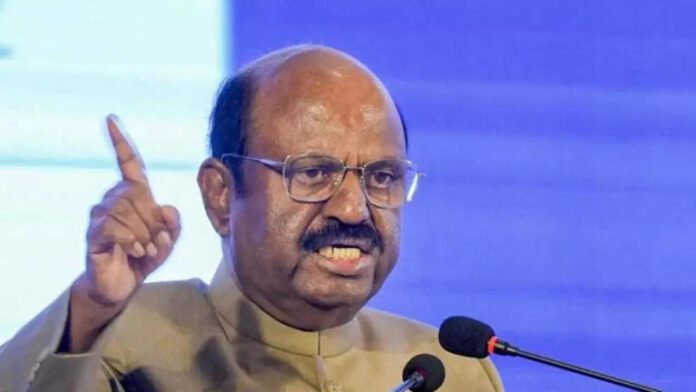Murshidabad, April 2025 — In the wake of recent political and communal unrest in West Bengal’s Murshidabad district, Governor Dr. C.V. Ananda Bose is set to visit the violence-hit areas to take stock of the ground situation and offer a message of peace and constitutional responsibility. His visit comes amid rising tension, calls for justice from affected families, and political finger-pointing between the ruling party and the opposition.
The Governor’s office confirmed on Wednesday that Dr. Bose will tour the most affected blocks of the district, interact with local residents, meet with victims’ families, and speak with administrative officials to understand the circumstances that led to the eruption of violence.
A District in Crisis
Murshidabad, located in central West Bengal, has been grappling with repeated episodes of violence over the past month, particularly after heightened political tensions escalated into physical clashes in parts of Domkal, Raninagar, and Lalgola. The incidents have led to several injuries, loss of property, and at least five reported deaths, according to unofficial sources.
Many shops and homes were set ablaze, and reports of arson and mob attacks have created an atmosphere of fear and insecurity. Police presence has been heightened, and Section 144 (prohibiting large gatherings) has been imposed in select areas to curb further escalation.
Local residents, however, claim that law enforcement arrived late and failed to control the violence in time. The administration has also faced criticism for not taking preemptive action despite warnings of potential flare-ups.
Governor’s Intent and Focus
Governor Ananda Bose’s upcoming visit, tentatively scheduled for Friday, is being seen as an effort to bridge the growing trust deficit between the people and the administration. According to Raj Bhavan sources, the Governor intends to assess the relief efforts and the response of local authorities firsthand.
In a statement issued earlier this week, the Governor said:
“Violence has no place in a democracy. I will personally ensure that the voices of the people are heard and justice is pursued where it is due. Peace, law, and order must be restored, and the Constitution must prevail.”
Sources also confirm that he is likely to visit relief camps, speak with displaced families, and inquire about rehabilitation efforts currently underway. Civil society organizations and local NGOs have welcomed his decision, calling it a much-needed gesture of solidarity.
Political Reactions and Blame Game
The situation in Murshidabad has intensified political tensions across the state. Opposition parties, particularly the Bharatiya Janata Party (BJP) and Congress, have accused the ruling Trinamool Congress (TMC) of failing to maintain law and order and ignoring warnings from ground-level workers.
BJP’s West Bengal President, Sukanta Majumdar, claimed,
“Murshidabad has become a symbol of TMC’s misrule. The people are being terrorized for political gain. We thank the Governor for taking this matter seriously when the state government is choosing to look away.”
In response, TMC leaders have accused the opposition of inciting unrest and politicizing tragedy. Senior TMC leader Firhad Hakim stated,
“We condemn the violence, but the BJP is trying to provoke communal disharmony for political mileage. The state government is doing everything possible to restore normalcy.”
Ground Reality and Public Sentiment
On the ground, residents of Murshidabad are caught between fear and uncertainty. Many families have fled their homes, and daily life remains disrupted. Schools remain shut in affected areas, markets are sparsely attended, and a heavy police presence continues to dominate public spaces.
“We just want to live in peace,” said Firoza Bibi, a resident of Domkal whose home was damaged during the unrest. “We don’t care about politics — we want security, justice, and the assurance that our children can sleep safely.”
The Governor’s visit is expected to boost morale among residents who feel neglected and unheard.
Looking Ahead
As West Bengal prepares for the upcoming panchayat by-elections, the situation in Murshidabad is likely to remain in the spotlight. Governor Bose’s visit could mark a turning point — not only in restoring calm but also in reinforcing constitutional oversight over law and order.
Whether this visit will lead to tangible change or remain a symbolic gesture is yet to be seen. However, for the people of Murshidabad, the presence of the state’s highest constitutional authority offers a glimmer of hope amid the uncertainty and fear that has gripped their lives.


